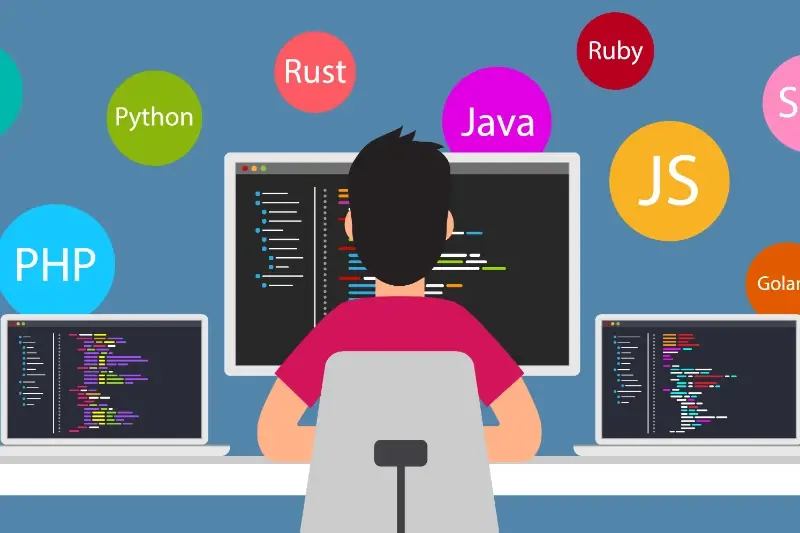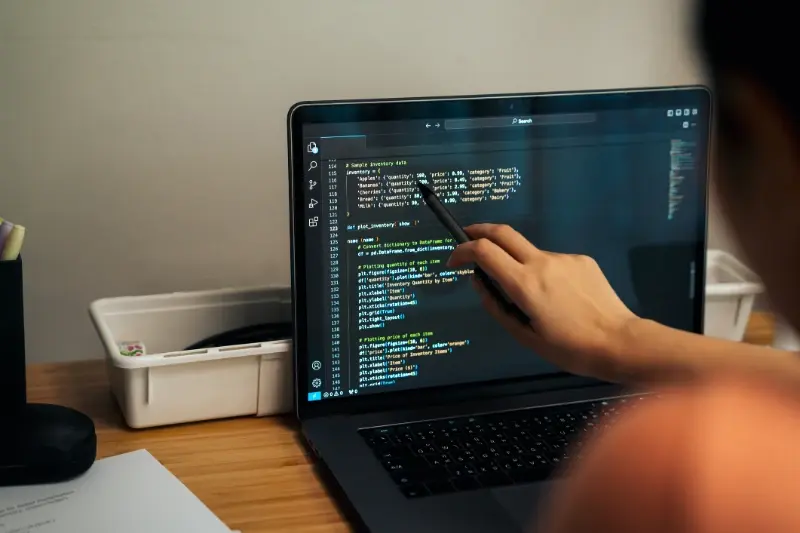The Complete Guide to Technical Interviews for App Developers
Around 73% of mobile app developers will face a technical interview at some point in their career, yet most feel completely unprepared for what's coming. I've watched talented developers stumble through perfectly manageable questions simply because they didn't know what to expect. The mobile app hiring process has evolved dramatically over the past few years—gone are the days when showing a portfolio was enough to land your dream job.
Technical assessments have become the gold standard for evaluating app development skills. Companies want to see how you think under pressure, how you solve problems, and whether you can actually build what you claim on your CV. The stakes feel higher because they are higher; mobile apps generate billions in revenue and a single poorly coded feature can crash an entire application.
The best technical interviews don't just test what you know—they reveal how you think and adapt when faced with new challenges
Whether you're a seasoned iOS developer switching companies or a fresh graduate looking for your first Android role, understanding what lies ahead can make the difference between success and disappointment. This guide will walk you through every aspect of the technical interview process, from the initial screening to the final system design questions that often trip up even experienced developers.
What Are Technical Interviews For App Developers
Technical interviews for app developers are specialised job interviews that test your coding skills, problem-solving abilities, and understanding of mobile app development. Think of them as practical exams where you show—not just tell—employers what you can do. Unlike regular job interviews that focus mainly on your experience and personality, technical interviews put your actual programming knowledge under the microscope.
These interviews typically include live coding sessions where you'll write code in real-time whilst someone watches (I know, it sounds terrifying but you get used to it!). You might be asked to build a small feature, fix a bug, or solve algorithmic problems. The interviewer wants to see how you think through problems, not just whether you can memorise code snippets.
What Makes Mobile App Technical Interviews Different
Mobile app technical interviews have their own flavour compared to web development interviews. You'll face questions about device limitations, battery optimisation, and platform-specific challenges. Here's what typically gets covered:
- Memory management and performance optimisation
- Working with different screen sizes and orientations
- Understanding of iOS/Android development frameworks
- API integration and data handling
- User interface design principles
- App store submission processes
The goal isn't to trip you up—employers genuinely want to find someone who can build quality apps that users will love. They're investing time and money in hiring, so they need to be confident you can deliver.
Understanding The Mobile App Hiring Process
The mobile app hiring process isn't like other tech interviews—it's got its own quirks and challenges that catch people off guard. When companies are looking for app developers, they're not just checking if you can code; they want to know if you understand the unique constraints of mobile development. Battery life, screen sizes, touch interfaces, app store guidelines—these all matter in ways that web development simply doesn't deal with.
Most companies follow a fairly predictable pattern when hiring mobile developers. You'll typically start with a phone screening where they'll ask basic questions about your experience with iOS or Android development. Then comes the technical assessment phase, which might include coding challenges, system design questions, or even take-home projects. The final stage usually involves meeting the team and discussing how you'd fit into their development process.
What Makes Mobile Different
What I find interesting about mobile app interviews is how they balance technical skills with user experience thinking. You might be asked to solve a coding problem, but then explain how your solution would perform on a device with limited memory. Or they'll want to know how you'd handle offline functionality—something that's becoming increasingly important in modern mobile app development.
Research the company's existing apps before your interview. Download them, use them, and be ready to discuss what you liked and what you might improve. This shows genuine interest and gives you concrete examples to reference during conversations.
Types Of Technical Assessments You'll Face
Right, let's talk about what you'll actually be dealing with when you walk into these technical interviews. From my experience helping developers through the hiring process, companies tend to use a mix of different assessment types—and knowing what's coming can really help calm those nerves.
Live Coding Sessions
These are probably the most common type you'll encounter. You'll be asked to solve a programming problem whilst the interviewer watches (sometimes literally over your shoulder, sometimes via screen share). They might ask you to build a simple calculator function or reverse a string. The key thing here isn't just getting the right answer—it's showing how you think through problems.
Take-Home Projects
Some companies prefer giving you a small project to complete at home over a few days. This could be building a mini weather app or creating a simple to-do list with specific features. I actually prefer these because you get to work in your own environment without the pressure of someone watching.
You might also face whiteboard challenges (drawing out solutions on a whiteboard), pair programming sessions where you code alongside a team member, or technical discussions about your previous work. Each company has their own style, but most will tell you beforehand what format they're using.
- Live coding challenges with real-time problem solving
- Take-home projects completed over several days
- Whiteboard sessions for algorithm discussions
- Pair programming with existing team members
- Portfolio reviews of your previous work
Preparing For Coding Challenges
Coding challenges are the meat and potatoes of the mobile app hiring process—they're where you'll spend most of your time during the technical assessment. I've seen countless developers stumble here, not because they lack skill, but because they didn't prepare properly. The good news? These challenges follow predictable patterns once you know what to look for.
Practice With Real Mobile Scenarios
Start by working through problems that mirror actual mobile app development. This means practicing with data structures like arrays and hash maps, which you'll use constantly when building apps. Focus on algorithms that deal with sorting, searching, and filtering—these come up again and again in real projects. Don't just solve problems randomly; pick ones that relate to mobile features like user authentication, data caching, or list management.
The best way to prepare for coding challenges is to solve problems you might actually face when building a mobile app
Master Your Chosen Language
Whether you're working in Swift, Kotlin, React Native, or Flutter, know your language inside and out. Practice writing clean, readable code without relying on autocomplete or IDE hints. Most coding challenges happen on whiteboards or basic text editors, so you won't have your usual tools. Spend time each day writing code by hand—it sounds old-fashioned, but it works brilliantly for building muscle memory. When you're working on your long-term mobile planning, you'll appreciate having these fundamentals down pat.
System Design Questions For Mobile Apps
System design questions are where things get properly interesting in mobile app interviews—and where many developers stumble. These questions test your ability to think about architecture, scalability, and how different parts of an app work together. You won't be writing code here; instead, you'll be sketching out systems on a whiteboard or explaining your thought process verbally.
Common System Design Scenarios
Interviewers love asking you to design familiar apps like Instagram, WhatsApp, or Uber. They're not expecting you to recreate these apps perfectly—they want to see how you break down complex problems into manageable pieces. Start with the basic features, then work your way up to more complex functionality.
Think about data storage, API design, offline functionality, and user authentication. How would you handle thousands of users uploading photos at once? What happens when someone's internet connection drops mid-conversation? These are the kinds of real-world challenges that separate good developers from great ones.
Mobile-Specific Considerations
Don't forget you're designing for mobile devices with limited battery life, variable network connections, and different screen sizes. Discuss caching strategies, background processing, and how you'd optimise for different platforms. Show that you understand the unique constraints of mobile app development—battery drain from constant GPS usage, handling app lifecycle events, and managing memory efficiently on devices with limited resources.
Behavioural Questions That Matter
Here's what I've learned after years in the mobile app hiring process—technical skills only tell half the story. You might be brilliant at coding challenges and system design, but if you can't work well with others or handle pressure, you'll struggle in a real development team. That's why behavioural questions have become such a big part of technical interviews for app developers.
Expect questions like "Tell me about a time you had to debug a critical bug under pressure" or "How do you handle conflicting feedback from different stakeholders?" These aren't trick questions; they're designed to understand how you think and react in real situations. The mobile app development world moves fast, and teams need people who can adapt quickly whilst maintaining quality.
When answering, use the STAR method—Situation, Task, Action, Result. Be specific about what you did, not what the team did. If you're asked about a failure, own it completely and focus on what you learned. I've seen candidates lose opportunities because they couldn't admit mistakes or threw teammates under the bus.
Practice your behavioural answers out loud before the interview. It sounds obvious, but speaking your responses helps you identify awkward phrasing and ensures you stay within reasonable time limits.
Remember, they're not just hiring a developer—they're hiring a team member who'll be part of their technical assessment process for future projects. Understanding what makes app developers stand out can help you showcase the right qualities during your interview.
Common Mistakes To Avoid
After years of conducting technical interviews for mobile app development roles, I've seen candidates make the same mistakes over and over again. The good news? Most of these are completely avoidable once you know what to look out for.
Not Testing Your Code
One of the biggest mistakes I see is candidates writing code and then sitting back like they're finished. Wrong! Always test your solution with a few examples—walk through it step by step and make sure it actually works. I've watched brilliant developers lose opportunities because they had the right idea but didn't spot a simple bug that would have been obvious if they'd just tested it.
Overthinking Simple Problems
When you're nervous, it's easy to assume every question needs a complex solution. Sometimes the interviewer just wants to see if you can write clean, simple code. Don't immediately jump to advanced algorithms or fancy design patterns unless the problem actually calls for it. This approach is something that top app developers consistently demonstrate in their work.
Here are the most common pitfalls to watch out for:
- Jumping straight into coding without asking clarifying questions
- Not explaining your thought process out loud
- Ignoring edge cases like empty arrays or null values
- Writing messy, unreadable code under pressure
- Getting flustered when the interviewer asks follow-up questions
Remember, interviewers want to see how you think and problem-solve, not just whether you can memorise algorithms. They're looking for developers who can learn from the best practices and apply them in real scenarios.
Conclusion
Technical interviews for mobile app developers can feel overwhelming at first—I get it, I've been there myself! But here's the thing: once you understand what companies are actually looking for, the whole hiring process becomes much more manageable. You're not just proving you can code; you're showing you can think through problems, communicate your ideas clearly, and work well with others.
The mobile app industry moves fast, and hiring managers know this. They want developers who can adapt, learn quickly, and handle the unique challenges that come with building apps for different devices and platforms. Whether you're facing coding challenges, system design questions, or behavioural interviews, remember that preparation is your best friend.
Practice coding problems regularly, study mobile-specific concepts like memory management and offline functionality, and don't forget to work on your communication skills. Most technical assessments aren't trying to trick you—they're trying to see how you think and solve real problems you'll face on the job.
The hiring process might seem daunting, but every experienced developer has been through it. Take it one step at a time, learn from each interview experience, and keep improving. Before you know it, you'll be the one helping newer developers navigate their own technical interviews!
Share this
Subscribe To Our Blog
You May Also Like
These Related Stories

IoT Security in Mobile Apps: What You Need to Know

5 Technical Tests Every App Developer Should Pass Before Hiring





